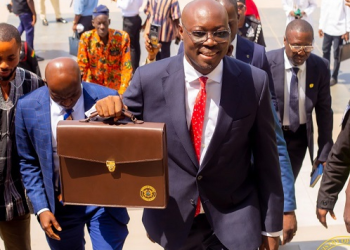President John Dramani Mahama has outlined an ambitious national target to raise Ghana’s poultry self-sufficiency from the current 12 percent to over 75 percent by the year 2028.
Speaking at the official launch of the Nkoko Nkitinkiti Poultry Industry Revitalization Programme at the Jubilee Park in Kumasi, the President said the initiative represents a bold and practical step toward restoring Ghana’s food self-sufficiency and reducing the nation’s reliance on imported poultry products.
“Our long-term target is to increase Ghana’s poultry self-sufficiency from 12 percent to over 75 percent by 2028,” President Mahama declared.
“Through the Nkoko Nkitinkiti Programme, we are not only investing in birds and feed, but also in the livelihoods of thousands of Ghanaian farmers, especially women and youth.”
The Nkoko Nkitinkiti Initiative, which translates to “Backyard Poultry” in Akan, is designed to promote household and community-level poultry production across all regions of Ghana. It aims to strengthen domestic poultry value chains, enhance feed production, and improve access to finance and veterinary services for smallholder farmers.
President Mahama described the programme as “a national movement, not just a government project,” emphasizing that its success depends on active participation from all stakeholders in the agricultural and private sectors.
“This is about empowering our farmers, growing our economy, and keeping more of our food within our borders,” he said.
“We are determined to create a resilient poultry industry that supports jobs, strengthens food security, and positions Ghana as a net exporter of poultry products in the near future.”
The Minister for Food and Agriculture, Hon. Eric Opoku, commended the President’s vision, noting that the revitalization programme will address long-standing challenges in the sector, including high production costs, limited access to quality feed, and overreliance on imports.
He explained that the ministry has developed a comprehensive implementation plan that includes support for hatcheries, feed mills, and cold chain facilities to ensure sustainability and competitiveness.
The launch, which brought together farmers, cooperatives, development partners, and traditional authorities, forms part of the Mahama administration’s broader food and agriculture transformation agenda aimed at achieving inclusive growth and rural prosperity.
Story: Patrick Asford Boadu












